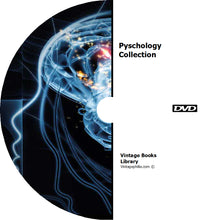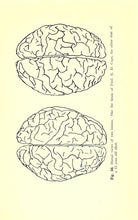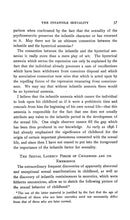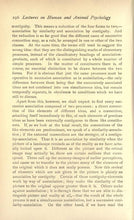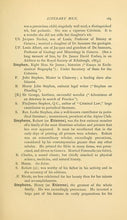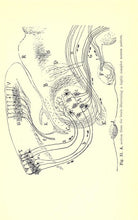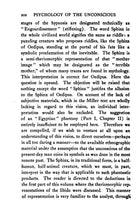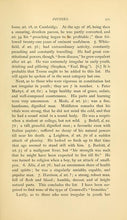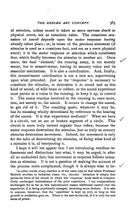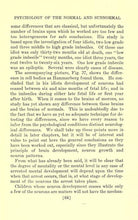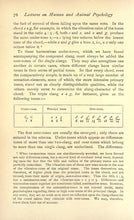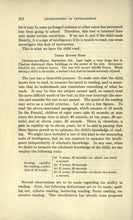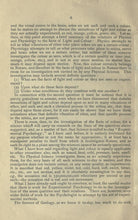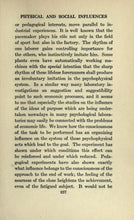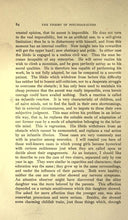
The definition of psychology as a social science is the scientific study of the behavior of man and the mind. Psychology is a broad discipline or subject that has a lot of branches in the areas of health, human development, cognitive processes, and social behavior.
The origin of psychology can be traced back to 400 – 500 years BC in ancient Greece. However, the recent and advanced studies on the science of psychology have occurred over the last 150 – 200 years. Some major historians in the field of psychology include Socrates, Plato, and Aristotle. They made remarkable impacts in the field starting from Socrates who influenced the others.
Popular topics that are often discussed in modern psychology include free will vs determinism, attraction, memory, and nature vs nurture. The study of psychology as a discipline hinges on two popular theoretical perspectives; functionalism and structuralism. The latter is dependent on developed introspection, which is a research strategy that enables people to associate their thoughts while carrying out a responsibility. Nonetheless, this has been a method with loopholes and weaknesses due to the variations in human reports and experiences on certain topics. What brought an incredible change in the discipline of psychology is Psychoanalysis. This theory was formulated by Sigmund Freud within the 1800s and 1900s.
Psychology has four major objectives as it relates to the human mind and behavior. These goals include describing, explaining, predicting, and changing the attitude and mind of humans. Discover the elements, structures, foundations, facts, and other related topics in psychology.Some researches done by Sigmund Freud and his theories are also contained in this DVD. Other topics include principles of psychology, elements of psychology, habit and instinct, and social self.
Take a look at the sample pages taken from just some of these books in the collection.
All of the book titles that are included in this DVD are listed as follows:
The Classical Psychologists - selections illustrating psychology from Anaxagoras to Wundt (1912) by Benjamin Rand (Descartes, Plato, Aristotle, Aquinas, Hobbes, Hume, Bonnet etc)
The Timaeus of Plato 1888 (Plato's account of the origin and nature of the psyche.)
Why Babe Ruth is greatest home-run hitter by Hugh S Fullerton 1921 (Popular Science Monthly article about Babe Ruth in the Columbia University psychology laboratory.
Tales by Edgar Allen Poe 1845 (contains Mesmeric Revelation, about using mesmerism on a patient)
The Psychopathology of Everyday Life by Sigmund Freud 1914
A General Introduction to Psycho-analysis by Sigmund Freud 1922
The Interpretation of Dreams by Sigmund Freud 1913
Dream Psychology - Psychoanalysis for Beginners by Sigmund Freud 1921
A First Book in Psychology by Mary W Calkins 1912
Experimental psychology and the Psychological Laboratory in the University of Toronto by Albert Abbott 1900
Psychology - A View of the Human Soul by FA Rauch 1841
Instinct and the Unconscious, a contribution to a biological theory of the psychoneuroses by William Rivers 1920
The Imagination in Spinoza and Hume - a comparative study in the light of some recent contributions to Psychology by WC Gore 1902
An Essay Concerning Human Understanding, Volume 1 by John Locke 1815
An Essay Concerning Human Understanding, Volume 2 by John Locke 1815
Personality Traits: their Classification and Measurement by Floyd and Gordon Allport 1921
A Treatise Concerning the Principles of Human knowledge by George Berkeley 1881
Meditations of First Philosophy by Rene Descartes
Memory - a contribution to Experimental Psychology by Hermann Ebbinghaus 1907 (considered to be the most important work on memory in the 19th century)
The province of functional psychology by James Rowland Angell 1907
A Treatise of Human Nature by David Hume
Dictionary of Philosophy and Psychology, Volume 1 by James Mark Baldwin 1901
Dictionary of Philosophy and Psychology, Volume 2 by James Mark Baldwin 1901
Dictionary of Philosophy and Psychology, Volume 3 part 1 by James Mark Baldwin 1901
Dictionary of Philosophy and Psychology, Volume 3 part 2 by James Mark Baldwin 1901
Observations on man by David Hartley 1834
The Principles of Psychology by William James, Volume 1, 1886 (considered by some to the most important English work in Psychology)
The Principles of Psychology by William James, Volume 2, 1886
Essays in radical empiricism by William James 1912 (Does consciousness exist? etc)
Accepting the Universe by Ethel Puffer Howes 1922
Collected essays and reviews by William James 1920 (Consciousness of lost limbs)
The Development of Intelligence in Children by Alfred Binet 1916
Fragments in Philosophy and Science - being collected essays and addresses by James Mark Baldwin 1902 (Includes: Types of reaction, and, The 'type-theory' of reaction)
History of Psychology, Volume 1, by James Mark Baldwin 1913
History of Psychology, Volume 2, by James Mark Baldwin 1913
A System of Logic by John Stuart Mill 1874
A Laboratory Course in Physiological Psychology by Edmund Sanford 1892
Recent Logical Inquiries and their Psychological Bearings by Josiah Royce 1902
A Study in Mental Statistics by Joseph Jastrow 1891
Fact and Fable in Psychology by Joseph Jastrow 1900
The Psychology of Conviction - a study of beliefs and attitudes by Joseph Jastrow 1918
The Postulates of a Structural Psychology by W Caldwell 1899
On the Improvement of the Understanding by Spinoza 1901
The Foundations Of Psychology by Jared Sparks Moore 1921
New Essays on Human Understanding by Gottfried Wilhelm Leibniz 1896
The Science of Human Behavior by Maurice Parmelee 1913
Principles of Physiological Psychology, Volume 1 by WM Wundt 1910
The Psychological Researches of James McKeen Cattell 1914
Principles of Psychology by William James Volume 1, 1890
Principles of Psychology by William James Volume 2, 1890
The Purposes of a Philosophical Association by JE Creighton 1902
Elements of Psychology by James Mark Baldwin 1893
Structure and Growth of the mind by William Mitchell 1907
The Descent of Man by Charles Darwin 1896
A biographical sketch of an infant by Charles Darwin 1877
An Introduction to Social Psychology by William McDougall 1918
Human Nature and Conduct - an Introduction to Social Psychology by John Dewey 1922
Psychology by John Dewey 1893
The Reflex Arc Concept in Psychology by John Dewey 1896
Hereditary Genius An Inquiry Into Its Laws And Consequences by Francis Galton 1892
Inquiries into Human Faculty and its development by Francis Galton 1883
The Kallikak Family - a study in the heredity of feeble-mindedness 1913 (influential book of the Eugenics movement) by Henry Goddard
The Practical Value of Psychology to the Teacher by James Gibson Hume 1897
Studies in Word-association - experiments in the diagnosis of psychopathological conditions carried out at the Psychiatric clinic of the University of Zurich under the direction of C. G. Jung 1919
Analytical Psychology by Carl Jung 1916
Psychology of the Unconscious by Carl Jung 1916
The Theory of Psychoanalysis by Carl Jung 1915
Dreams and Myths by Karl Abraham 1913
The Method of Pavlov in Animal Psychology (you've heard of Pavlov's dogs, well this paper introduced Pavlov to the Western World) by Robert Yerkes 1909
The Relation of Strength of Stimulus to Rapidity of habit-formation by Robert Yerkes 1908
The Myth of the Birth of the Hero -a Psychological Interpretation of Mythology by Otto Rank 1914
Psychology of the Normal and Subnormal by Henry Goddard 1919
The Primer of Psychology by Edward Titchener 1898
Outlines of Psychology by WM Wundt 1907
An Introduction to Psychology by WM Wundt 1912
Lectures on Human and Animal Psychology by WM Wundt 1901
Psychology as the Behaviorist Views It by John B Watson 1913
Psychology and Life by Hugo Münsterberg 1899
Psychology and Industrial Efficiency by Hugo Münsterberg 1913
On the Witness Stand - essays on Psychology and Crime by Hugo Münsterberg 1908
History, essays, orations, and other documents of the sixth general conference of the Evangelical Alliance 1873 by Philip Schaff (contains: Religious aspects of the doctrine of development by James McCosh)
Animal Intelligence by Edward Thorndike 1911
Creative Intelligence by George H Mead 1917
The Definition of the Psychical by George H Mead 1903
The Social Self by George Herbert Mead 1913
Behavior - An Introduction To Comparative Psychology by John B Watson 1914
The Mental Traits of Sex by Helen T Woolley
Psycho-Analysis - a Brief Account of the Freudian Theory by Barbara Low 1920
Freud's Theories of the Neuroses by Eduard Hitschmann 1913
Three Contributions to the Sexual Theory by S Freud 1910
Leonardo da Vinci - a Psychosexual Study of an Infantile Reminiscence by Sigmund Freud 1916
Outlines of a Philosophy of religion based on psychology and history by Auguste Sabatier 1902
An Introduction to Comparative Psychology by Conwy Lloyd Morgan 1896
Habit and Instinct by Conwy Lloyd Morgan 1896
The Measurement of Intelligence; an explanation of and a complete guide for the use of the Stanford revision and extension of the Binet-Simon intelligence scale by Lewis Terman 1916
The Psychology of Nations - a contribution to the Philosophy of History by GE Partrige 1919
The Type-theory of Simple Reaction by Edward Titchener 1895
Studies in Psychology by Edward Titchener 1917
The Dynamogenic Factors in Pacemaking and Competition by Norman Triplett 1898
Introspection as an Objective Method by Margaret Floy Washburn 1922
A Dictionary of Psychological Medicine giving the definition, etymology and synonyms of the terms used in medical psychology, Volume 1 by Daniel H Tuke 1892
A Dictionary of Psychological Medicine giving the definition, etymology and synonyms of the terms used in medical psychology, Volume 2 by Daniel H Tuke 1892
Philosophical Discussions by Chauncey Wright, 1878
The origin of psychology can be traced back to 400 – 500 years BC in ancient Greece. However, the recent and advanced studies on the science of psychology have occurred over the last 150 – 200 years. Some major historians in the field of psychology include Socrates, Plato, and Aristotle. They made remarkable impacts in the field starting from Socrates who influenced the others.
Popular topics that are often discussed in modern psychology include free will vs determinism, attraction, memory, and nature vs nurture. The study of psychology as a discipline hinges on two popular theoretical perspectives; functionalism and structuralism. The latter is dependent on developed introspection, which is a research strategy that enables people to associate their thoughts while carrying out a responsibility. Nonetheless, this has been a method with loopholes and weaknesses due to the variations in human reports and experiences on certain topics. What brought an incredible change in the discipline of psychology is Psychoanalysis. This theory was formulated by Sigmund Freud within the 1800s and 1900s.
Psychology has four major objectives as it relates to the human mind and behavior. These goals include describing, explaining, predicting, and changing the attitude and mind of humans. Discover the elements, structures, foundations, facts, and other related topics in psychology.Some researches done by Sigmund Freud and his theories are also contained in this DVD. Other topics include principles of psychology, elements of psychology, habit and instinct, and social self.
Take a look at the sample pages taken from just some of these books in the collection.
All of the book titles that are included in this DVD are listed as follows:
The Classical Psychologists - selections illustrating psychology from Anaxagoras to Wundt (1912) by Benjamin Rand (Descartes, Plato, Aristotle, Aquinas, Hobbes, Hume, Bonnet etc)
The Timaeus of Plato 1888 (Plato's account of the origin and nature of the psyche.)
Why Babe Ruth is greatest home-run hitter by Hugh S Fullerton 1921 (Popular Science Monthly article about Babe Ruth in the Columbia University psychology laboratory.
Tales by Edgar Allen Poe 1845 (contains Mesmeric Revelation, about using mesmerism on a patient)
The Psychopathology of Everyday Life by Sigmund Freud 1914
A General Introduction to Psycho-analysis by Sigmund Freud 1922
The Interpretation of Dreams by Sigmund Freud 1913
Dream Psychology - Psychoanalysis for Beginners by Sigmund Freud 1921
A First Book in Psychology by Mary W Calkins 1912
Experimental psychology and the Psychological Laboratory in the University of Toronto by Albert Abbott 1900
Psychology - A View of the Human Soul by FA Rauch 1841
Instinct and the Unconscious, a contribution to a biological theory of the psychoneuroses by William Rivers 1920
The Imagination in Spinoza and Hume - a comparative study in the light of some recent contributions to Psychology by WC Gore 1902
An Essay Concerning Human Understanding, Volume 1 by John Locke 1815
An Essay Concerning Human Understanding, Volume 2 by John Locke 1815
Personality Traits: their Classification and Measurement by Floyd and Gordon Allport 1921
A Treatise Concerning the Principles of Human knowledge by George Berkeley 1881
Meditations of First Philosophy by Rene Descartes
Memory - a contribution to Experimental Psychology by Hermann Ebbinghaus 1907 (considered to be the most important work on memory in the 19th century)
The province of functional psychology by James Rowland Angell 1907
A Treatise of Human Nature by David Hume
Dictionary of Philosophy and Psychology, Volume 1 by James Mark Baldwin 1901
Dictionary of Philosophy and Psychology, Volume 2 by James Mark Baldwin 1901
Dictionary of Philosophy and Psychology, Volume 3 part 1 by James Mark Baldwin 1901
Dictionary of Philosophy and Psychology, Volume 3 part 2 by James Mark Baldwin 1901
Observations on man by David Hartley 1834
The Principles of Psychology by William James, Volume 1, 1886 (considered by some to the most important English work in Psychology)
The Principles of Psychology by William James, Volume 2, 1886
Essays in radical empiricism by William James 1912 (Does consciousness exist? etc)
Accepting the Universe by Ethel Puffer Howes 1922
Collected essays and reviews by William James 1920 (Consciousness of lost limbs)
The Development of Intelligence in Children by Alfred Binet 1916
Fragments in Philosophy and Science - being collected essays and addresses by James Mark Baldwin 1902 (Includes: Types of reaction, and, The 'type-theory' of reaction)
History of Psychology, Volume 1, by James Mark Baldwin 1913
History of Psychology, Volume 2, by James Mark Baldwin 1913
A System of Logic by John Stuart Mill 1874
A Laboratory Course in Physiological Psychology by Edmund Sanford 1892
Recent Logical Inquiries and their Psychological Bearings by Josiah Royce 1902
A Study in Mental Statistics by Joseph Jastrow 1891
Fact and Fable in Psychology by Joseph Jastrow 1900
The Psychology of Conviction - a study of beliefs and attitudes by Joseph Jastrow 1918
The Postulates of a Structural Psychology by W Caldwell 1899
On the Improvement of the Understanding by Spinoza 1901
The Foundations Of Psychology by Jared Sparks Moore 1921
New Essays on Human Understanding by Gottfried Wilhelm Leibniz 1896
The Science of Human Behavior by Maurice Parmelee 1913
Principles of Physiological Psychology, Volume 1 by WM Wundt 1910
The Psychological Researches of James McKeen Cattell 1914
Principles of Psychology by William James Volume 1, 1890
Principles of Psychology by William James Volume 2, 1890
The Purposes of a Philosophical Association by JE Creighton 1902
Elements of Psychology by James Mark Baldwin 1893
Structure and Growth of the mind by William Mitchell 1907
The Descent of Man by Charles Darwin 1896
A biographical sketch of an infant by Charles Darwin 1877
An Introduction to Social Psychology by William McDougall 1918
Human Nature and Conduct - an Introduction to Social Psychology by John Dewey 1922
Psychology by John Dewey 1893
The Reflex Arc Concept in Psychology by John Dewey 1896
Hereditary Genius An Inquiry Into Its Laws And Consequences by Francis Galton 1892
Inquiries into Human Faculty and its development by Francis Galton 1883
The Kallikak Family - a study in the heredity of feeble-mindedness 1913 (influential book of the Eugenics movement) by Henry Goddard
The Practical Value of Psychology to the Teacher by James Gibson Hume 1897
Studies in Word-association - experiments in the diagnosis of psychopathological conditions carried out at the Psychiatric clinic of the University of Zurich under the direction of C. G. Jung 1919
Analytical Psychology by Carl Jung 1916
Psychology of the Unconscious by Carl Jung 1916
The Theory of Psychoanalysis by Carl Jung 1915
Dreams and Myths by Karl Abraham 1913
The Method of Pavlov in Animal Psychology (you've heard of Pavlov's dogs, well this paper introduced Pavlov to the Western World) by Robert Yerkes 1909
The Relation of Strength of Stimulus to Rapidity of habit-formation by Robert Yerkes 1908
The Myth of the Birth of the Hero -a Psychological Interpretation of Mythology by Otto Rank 1914
Psychology of the Normal and Subnormal by Henry Goddard 1919
The Primer of Psychology by Edward Titchener 1898
Outlines of Psychology by WM Wundt 1907
An Introduction to Psychology by WM Wundt 1912
Lectures on Human and Animal Psychology by WM Wundt 1901
Psychology as the Behaviorist Views It by John B Watson 1913
Psychology and Life by Hugo Münsterberg 1899
Psychology and Industrial Efficiency by Hugo Münsterberg 1913
On the Witness Stand - essays on Psychology and Crime by Hugo Münsterberg 1908
History, essays, orations, and other documents of the sixth general conference of the Evangelical Alliance 1873 by Philip Schaff (contains: Religious aspects of the doctrine of development by James McCosh)
Animal Intelligence by Edward Thorndike 1911
Creative Intelligence by George H Mead 1917
The Definition of the Psychical by George H Mead 1903
The Social Self by George Herbert Mead 1913
Behavior - An Introduction To Comparative Psychology by John B Watson 1914
The Mental Traits of Sex by Helen T Woolley
Psycho-Analysis - a Brief Account of the Freudian Theory by Barbara Low 1920
Freud's Theories of the Neuroses by Eduard Hitschmann 1913
Three Contributions to the Sexual Theory by S Freud 1910
Leonardo da Vinci - a Psychosexual Study of an Infantile Reminiscence by Sigmund Freud 1916
Outlines of a Philosophy of religion based on psychology and history by Auguste Sabatier 1902
An Introduction to Comparative Psychology by Conwy Lloyd Morgan 1896
Habit and Instinct by Conwy Lloyd Morgan 1896
The Measurement of Intelligence; an explanation of and a complete guide for the use of the Stanford revision and extension of the Binet-Simon intelligence scale by Lewis Terman 1916
The Psychology of Nations - a contribution to the Philosophy of History by GE Partrige 1919
The Type-theory of Simple Reaction by Edward Titchener 1895
Studies in Psychology by Edward Titchener 1917
The Dynamogenic Factors in Pacemaking and Competition by Norman Triplett 1898
Introspection as an Objective Method by Margaret Floy Washburn 1922
A Dictionary of Psychological Medicine giving the definition, etymology and synonyms of the terms used in medical psychology, Volume 1 by Daniel H Tuke 1892
A Dictionary of Psychological Medicine giving the definition, etymology and synonyms of the terms used in medical psychology, Volume 2 by Daniel H Tuke 1892
Philosophical Discussions by Chauncey Wright, 1878














